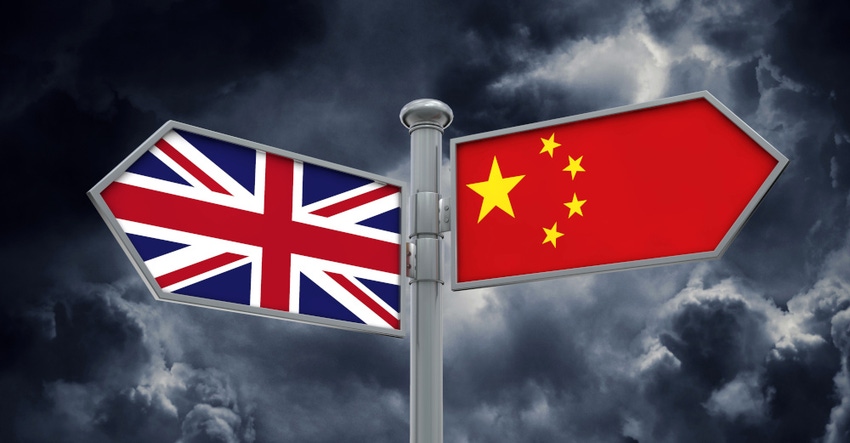Ofcom removes Chinese propaganda outlet from British airwaves
The UK’s communications regulator has decided to revoke the licence to broadcast by the TV channel China Global Television Network, an overseas branch of China’s propaganda network.
February 5, 2021

The UK’s communications regulator has decided to revoke the licence to broadcast by the TV channel China Global Television Network, an overseas branch of China’s propaganda network.
In reaching its decision Ofcom has established that China Global Television Network (CGTN) has failed to meet two key requirements of the UK’s broadcasting laws in order to hold the licence. First, the licence must be held by the “provider of the service” which should have editorial oversight over the programmes they show, and second, the licence holder cannot be controlled by political bodies.
“Our investigation showed that the licence for China Global Television Network is held by an entity which has no editorial control over its programmes. We are unable to approve the application to transfer the licence to China Global Television Network Corporation because it is ultimately controlled by the Chinese Communist Party, which is not permitted under UK broadcasting law,” said Ofcom’s spokesperson.
“We’ve provided CGTN with numerous opportunities to come into compliance, but it has not done so. We now consider it appropriate to withdraw the licence for CGTN to broadcast in the UK.”
On the first offence, CGTN’s broadcasting licence has been held by Star China Media Limited (SCML), CGTN’s UK distributor, which did not make editorial decisions over CGTN’s output, nor did it employ any CGTN staff. So, technically SCML has been “sub-letting” its licence, which is explicitly forbidden by Ofcom’s licensing guidance.
On the second item, related to the first offence, CGTN has requested to transfer licence to China Global Television Network Corporation (CGTNC), the entity which it claimed exercises general control over editorial matters. However, CGTN has failed to provide Ofcom with critical information to convince the regulator that the entity should not be treated as a “disqualified person” to hold a broadcasting licence.
Ultimately, Ofcom determines that CGTN (and CGTNC) is a wholly owned subsidiary of China Central Television (CCTV), one of the most important component of China’s official propaganda apparatus, which is under the total control of the Chinese Communist Party. This in turn makes CGTN’s owner “a body whose objects are wholly or mainly of a political nature and/or is controlled by a body whose objects are wholly or mainly of a political nature,” Ofcom says in its Notice of Revocation.
CGTN responded with a brief message posted on its homepage, “China urges the British side to correct mistakes and immediately stop political manipulation, in response to Ofcom’s final ruling on the revocation of CGTN’s broadcasting license in the UK, Chinese Foreign Ministry spokesperson Wang Wenbin said Friday at a regular press briefing.”
This is not the first time CGTN, and China’s overseas propaganda offensive, has suffered setbacks. In 2018 the American government ordered CGTN and Xinhua News Agency, another major propaganda outlet, to register as foreign agents. The dispute was escalated at the beginning of 2020, when the State Department decided that these two outlets as well as China Radio, China Daily, and The People’s Daily would be officially treated as foreign government functionaries, which would subject them to similar rules as diplomatic corps stationed in the US. A month later China retaliated by expelling 13 journalists from The Washington Post, The Wall Street Journal, and The New York Times. It also forced the three papers as well as Voice of America and CNN to fire their Chinese employees.
Nor was it the first time that Ofcom has taken issue with CGTN in the UK. In June last year the regulator found CGTN having “seriously breached British broadcasting regulations” by showing forced confessions of Peter Humphrey, a British national held in a Chinese prison in 2013 and 2014. Since his release in 2015 Humphrey has complained to Ofcom demanding CGTN’s licence be cancelled for showing the confessions made under duress and for violating his privacy.
About the Author(s)
You May Also Like








.png?width=300&auto=webp&quality=80&disable=upscale)


_1.jpg?width=300&auto=webp&quality=80&disable=upscale)


.png?width=800&auto=webp&quality=80&disable=upscale)